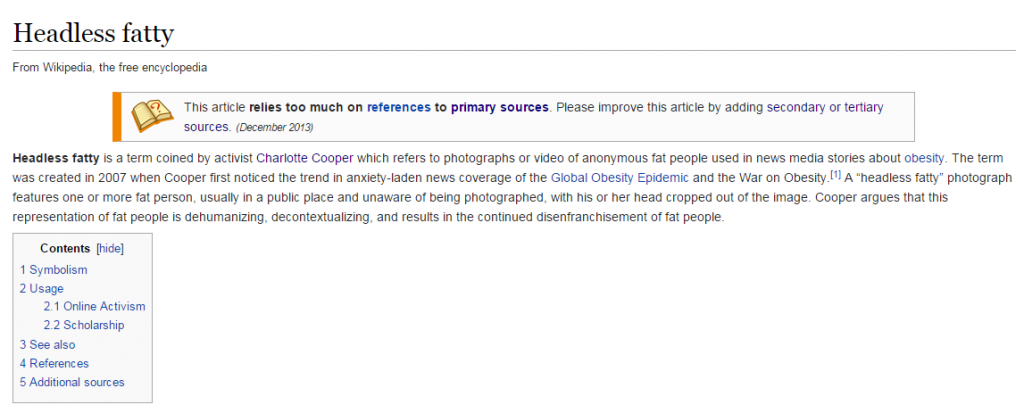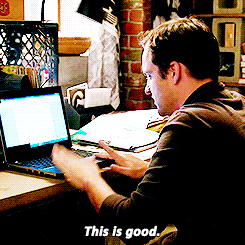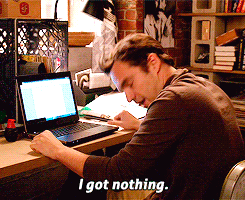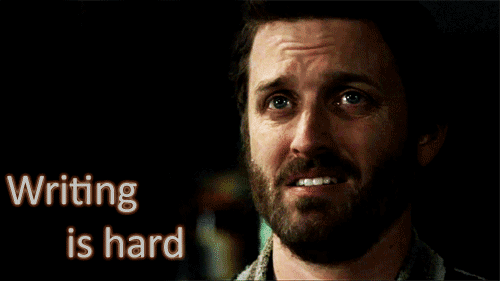In the coming weeks, the Digital Rhetoric Collaborative will be focusing on digital activisms and ways of engaging activist and advocate discourse in online spaces. To usher in that focus, we’ll be dedicating a few Wiki Wednesday posts to interrogating Wikipedia as a site for making, sharing, and circulating meaning. For this introductory post, I was inspired by Jim Porter’s “Why Technology Matters to Writing: A Cyberwriter’s Tale,” and Jim Ridolfo’s “Rhetorical Delivery as Strategy: Rebuilding the Fifth Canon from Practitioner Stories” to share my experience writing for and publishing on Wikipedia. It’s my hope that sharing this story allows us to tease out some implications for how we ask students to engage with public wikis and how we theorize these spaces.
The Assignment
In the fall of 2013, I was assigned to write an entry for Wikipedia as part of my course work for a graduate class at  Florida State University. The class, Convergence Culture and Digital Revolution, invited us to consider the effects of digital culture on writing and communication practices, part of which included acting as practitioners in the processes of the digital encyclopedia. For the assignment, we were asked to either create a new page or make substantial edits to an existing page. The exercise resulted in a variety of new pages, including a page for “writing assessment,” which provides an outline of writing assessment as a field of inquiry, “residual media,” detailing theories of old media that don’t simply disappear when new media are developed, and my own page, “headless fatty,” which provides background for the headless fatty trope theorized in fat studies. My classmates also made substantial changes to “multimodality,” updating an already rich overview of multimodality and its application. Yet another classmate requested a redirect from Wikipedia editors to rename the “eRhetoric” entry as “Digital Rhetoric.”
Florida State University. The class, Convergence Culture and Digital Revolution, invited us to consider the effects of digital culture on writing and communication practices, part of which included acting as practitioners in the processes of the digital encyclopedia. For the assignment, we were asked to either create a new page or make substantial edits to an existing page. The exercise resulted in a variety of new pages, including a page for “writing assessment,” which provides an outline of writing assessment as a field of inquiry, “residual media,” detailing theories of old media that don’t simply disappear when new media are developed, and my own page, “headless fatty,” which provides background for the headless fatty trope theorized in fat studies. My classmates also made substantial changes to “multimodality,” updating an already rich overview of multimodality and its application. Yet another classmate requested a redirect from Wikipedia editors to rename the “eRhetoric” entry as “Digital Rhetoric.”
Each of us has our own stories to tell about the experience of contributing to Wikipedia, and we all considered it a positive experience. It was one of the glorious moments where practice met theory, and we were provided with the opportunity to engage the concepts we’d been tinkering with in immediate composing practice. For me, the experience was a rush, rife with anxiety and excitement.
Composing
A s I began composing my entry, I was fueled by my passion for my topic and with conviction for sharing it. But composing the Wikipedia entry demonstrated a challenge I don’t often experience: affecting a tone and voice other than my own. I struggled, even as a graduate student and an experienced writer, to mimic that distinctive Wikipedian tone. I also felt an enormous amount of pressure to include all the vital information, to find, read, interpret, and evaluate everything I could about this topic in order to best represent it on Wikipedia. For me, and many others, Wikipedia functions as a first stop for many new ideas, and I wanted my page to not only provide readers with enough information to make their own decisions about “the headless fatty” phenomenon, but also wanted to proudly represent the work done with the term. Though Wikipedia makes attempts at neutrality, I wasn’t making any bones about my page. For me, this was always an advocacy project—I was spreading a concept that I thought had power and the objectivist language, genre constraints, and dearth of information significantly complicated my efforts to do so.
s I began composing my entry, I was fueled by my passion for my topic and with conviction for sharing it. But composing the Wikipedia entry demonstrated a challenge I don’t often experience: affecting a tone and voice other than my own. I struggled, even as a graduate student and an experienced writer, to mimic that distinctive Wikipedian tone. I also felt an enormous amount of pressure to include all the vital information, to find, read, interpret, and evaluate everything I could about this topic in order to best represent it on Wikipedia. For me, and many others, Wikipedia functions as a first stop for many new ideas, and I wanted my page to not only provide readers with enough information to make their own decisions about “the headless fatty” phenomenon, but also wanted to proudly represent the work done with the term. Though Wikipedia makes attempts at neutrality, I wasn’t making any bones about my page. For me, this was always an advocacy project—I was spreading a concept that I thought had power and the objectivist language, genre constraints, and dearth of information significantly complicated my efforts to do so.
 Another complication occurred when I moved to publish my page. Though there are several FAQ pages that demonstrate how to create a new Wikipedia page, I never could find the entry point to do so myself. It made me, as a contributor, feel a bit unwelcome, as if the gatekeepers that be had decided there was enough content and, if I really wanted to participate, I could work as an editor. At every turn, I was confronted by a page that prompted me to reconsider—did Wikipedia really need my page? In the end, I circumvented the process of opening a new page by editing an entry for “Charlotte Cooper,” who coined the term, to add a single sentence and link to “headless fatty” to create a stub and proceeded to build my page that way.
Another complication occurred when I moved to publish my page. Though there are several FAQ pages that demonstrate how to create a new Wikipedia page, I never could find the entry point to do so myself. It made me, as a contributor, feel a bit unwelcome, as if the gatekeepers that be had decided there was enough content and, if I really wanted to participate, I could work as an editor. At every turn, I was confronted by a page that prompted me to reconsider—did Wikipedia really need my page? In the end, I circumvented the process of opening a new page by editing an entry for “Charlotte Cooper,” who coined the term, to add a single sentence and link to “headless fatty” to create a stub and proceeded to build my page that way.
The actual publishing of the page was simple enough. One of my colleagues hosted a Wiki editing workshop and provided us with all the basic tools for composing in the space, and, from a technical standpoint, my page came together pretty easily after my initial difficulty in finding a way into the publication mechanism.
But then came the anxiety.
 After I published my page, I refreshed it over and over. I left Wikipedia, returned to Wikipedia, searched my term and re-visited the page over and over again expecting it to disappear into the digital ether. I took screenshots to prove that I had once posted a Wikipedia entry that met an untimely demise so that no matter what happened, I would have a record to turn in for class, and a record to save for posterity. I racked my brain for potential reasons the page could get zapped. I’ve read studies that show that most Wikipedians are men, and I wondered if it were possible that my writing would be deemed to “feminine” and would be removed. I worried that my desire to do an advocacy project would bristle other editors’ more objective goals. My page was flagged three different times for three different complaints. I was sure it was doomed. Drafting this post in the wake of #GamerGate and the resulting banning of several writers, I’m not sure my concerns were unfounded. But, as of yet, my page hasn’t been zapped, though it has undergone some minor editing and classification changes. The page lives on, and hopefully, will serve as a cornerstone for other new pages that explore similar concepts.
After I published my page, I refreshed it over and over. I left Wikipedia, returned to Wikipedia, searched my term and re-visited the page over and over again expecting it to disappear into the digital ether. I took screenshots to prove that I had once posted a Wikipedia entry that met an untimely demise so that no matter what happened, I would have a record to turn in for class, and a record to save for posterity. I racked my brain for potential reasons the page could get zapped. I’ve read studies that show that most Wikipedians are men, and I wondered if it were possible that my writing would be deemed to “feminine” and would be removed. I worried that my desire to do an advocacy project would bristle other editors’ more objective goals. My page was flagged three different times for three different complaints. I was sure it was doomed. Drafting this post in the wake of #GamerGate and the resulting banning of several writers, I’m not sure my concerns were unfounded. But, as of yet, my page hasn’t been zapped, though it has undergone some minor editing and classification changes. The page lives on, and hopefully, will serve as a cornerstone for other new pages that explore similar concepts.
Practical Experience Informing Teaching and Scholarship
 For me, this experience informs both my digital teaching practices and my digital scholarship. First, I think it’s important to consider the kinds of risks and discomfort students might take and experience as part of their participation a public collaborative digital environment. The anxiety I experienced during this project, though well worth the rest of the experience, was surprising and a bit incredible. It is a scary thing to interact with a community, digitally or otherwise, that you don’t have much experience with. It is a scary thing to write like someone other than yourself, and a scarier thing still to consider who might read your writing and why. This is exactly why we have students engage with Wikis, of course, to consider issues relating to audience, genre, tone, voice, and information, but I think it’s worth attending to the emotional and personal aspects of this activity, too. The challenges of working in a Wiki, too, should not be underestimated. I was fortunate to have attended a workshop on how to create and edit Wiki pages prior to my engagement in the space, but still encountered difficulties. If we invite our students to use these spaces, which may be completely alien to some users, we must also provide them with some tools, logics, and experience that can help guide them through the interfaces they will encounter.
For me, this experience informs both my digital teaching practices and my digital scholarship. First, I think it’s important to consider the kinds of risks and discomfort students might take and experience as part of their participation a public collaborative digital environment. The anxiety I experienced during this project, though well worth the rest of the experience, was surprising and a bit incredible. It is a scary thing to interact with a community, digitally or otherwise, that you don’t have much experience with. It is a scary thing to write like someone other than yourself, and a scarier thing still to consider who might read your writing and why. This is exactly why we have students engage with Wikis, of course, to consider issues relating to audience, genre, tone, voice, and information, but I think it’s worth attending to the emotional and personal aspects of this activity, too. The challenges of working in a Wiki, too, should not be underestimated. I was fortunate to have attended a workshop on how to create and edit Wiki pages prior to my engagement in the space, but still encountered difficulties. If we invite our students to use these spaces, which may be completely alien to some users, we must also provide them with some tools, logics, and experience that can help guide them through the interfaces they will encounter.
As a researcher, my experiences in Wikipedia helped me to see just how structured and, at times, exclusive the online encyclopedia can be. For an organization that promotes itself as a “free,” in many senses of the term, encyclopedia, there sure was a lot of hassle to get involved. Wikipedia wanted my grammar skills when I wanted to give it ideas. In a lot of ways, Wikipedia is still very tied to print-centric culture, relying heavily on printed materials as sources and borrowing its epistemology and genre conventions from the print encyclopedia. There are real issues of erasure and exclusion on Wikipedia–there are real risks associated with Wikipedia’s procliamed “freedom.” Indeed, as Cindy Selfe claimed of technology in “Lest We Think the Revolution is a Revolution,” we must still be wary of how discourses of technology shape the ways technologies are used and developed. If we want Wikipedia to be free, really free, then we have to interrogate the ways in which it is not.
encyclopedia can be. For an organization that promotes itself as a “free,” in many senses of the term, encyclopedia, there sure was a lot of hassle to get involved. Wikipedia wanted my grammar skills when I wanted to give it ideas. In a lot of ways, Wikipedia is still very tied to print-centric culture, relying heavily on printed materials as sources and borrowing its epistemology and genre conventions from the print encyclopedia. There are real issues of erasure and exclusion on Wikipedia–there are real risks associated with Wikipedia’s procliamed “freedom.” Indeed, as Cindy Selfe claimed of technology in “Lest We Think the Revolution is a Revolution,” we must still be wary of how discourses of technology shape the ways technologies are used and developed. If we want Wikipedia to be free, really free, then we have to interrogate the ways in which it is not.
So, for me, what arises from this narrative are issues of risk, protection, representation, access, and ideology, but this only scratches the surface of the issues inherent in Wiki composing. We’ll be exploring this more in depth as the next few months progress, but we’d love to hear your thoughts. Comment below: What’s your story? What can we learn from it?
